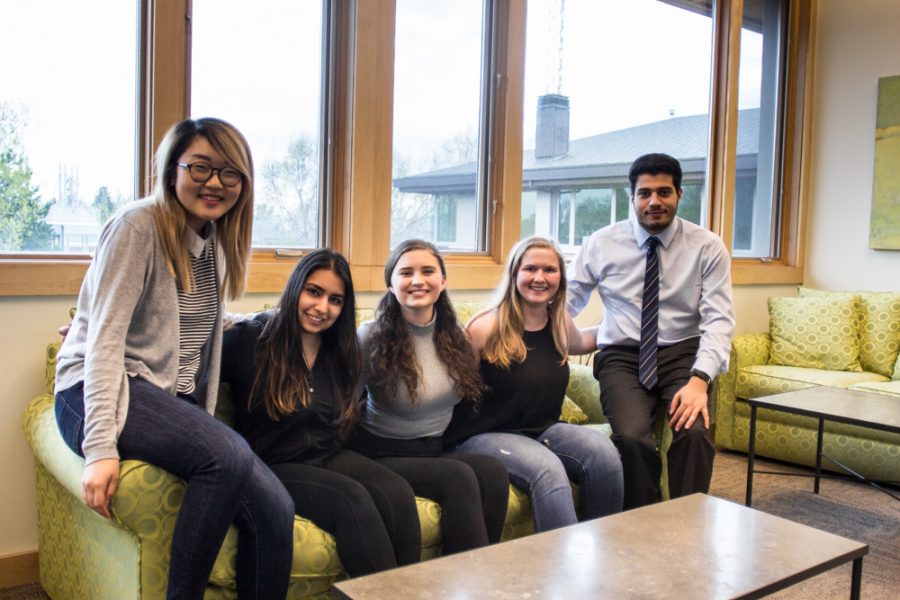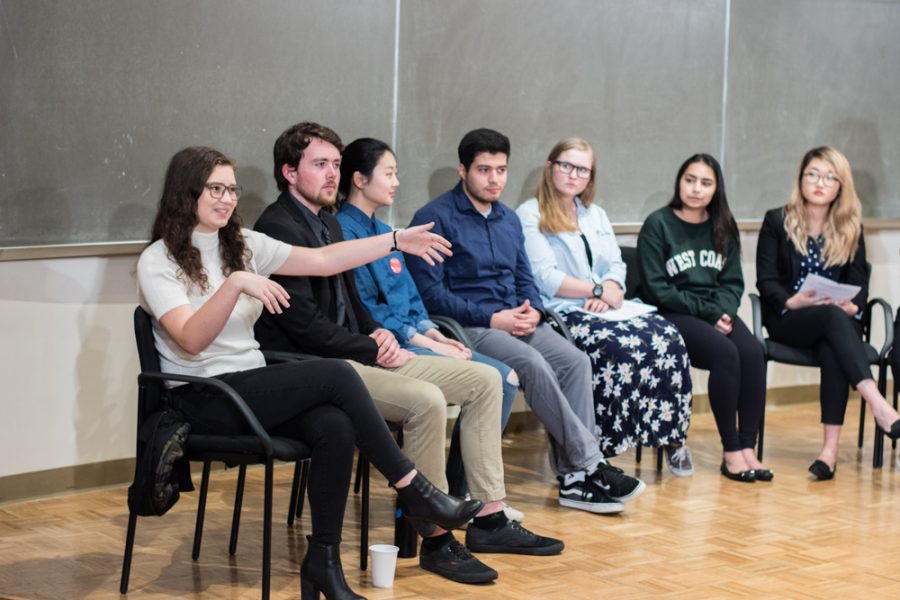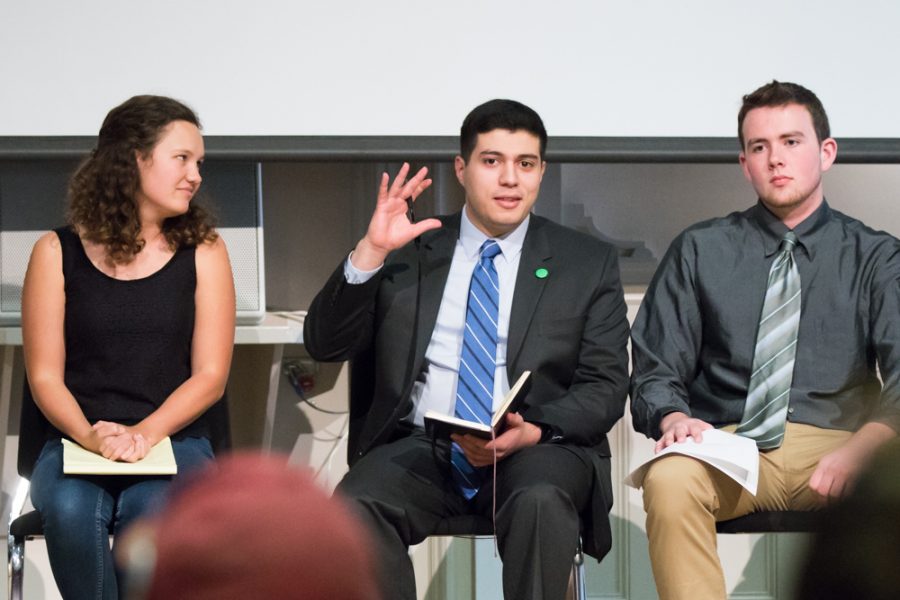ASWC is currently pushing to get student representation on Whitman College’s newly-established curriculum committee. Members of ASWC believe that allowing students to be a part of making curriculum-related decisions will be hugely beneficial for the college.
ASWC has sent a letter regarding this issue to the student body and its members are tabling in Reid Campus Center to raise awareness about the proposal. Senators are also meeting one-on-one with professors to try and build faculty support. ASWC hopes that students will encourage their professors to vote to pass the proposal on March 30.
If passed, their proposal will save two non-voting seats on next year’s curriculum committee for the ASWC president and vice president.
The curriculum committee is new to Whitman — it was voted into existence last November. Its two primary functions are to oversee changes in course descriptions as reflected in the catalog and to look at how best to combat course compression.
This committee will be the first ever to undergo curriculum planning across divisions. They will be using a new web-based system to organize their plans.
The curriculum committee in part replaces the academic council, which had student representation.
Senior John Loranger, ASWC vice president and chair of the student affairs committee, said that currently the curriculum committee language is set so that “consultation” with students, technology services and the library staff can occur as needed.
Loranger feels that this isn’t enough.
“Students are in a categorically different group than the others. We’re who the curriculum is designed for,” he said.
He feels that students can provide the faculty committee members with a perspective they would not have otherwise had.
“Faculty are absolutely the experts on curriculum. But students can provide an experiential perspective. We see how the curriculum is working day-to-day, and we’re taking classes across departments over a four-year period of time,” he said.
He believes allowing students on the committee says something positive about Whitman as a whole.
“This is a collaborative, open community. The best decision-making includes both parties affected.”
ASWC president senior Carson Burns agrees.
“This is a two-way street,” he said.
Burns also drew attention to a specific section of the ASWC proposal that spoke to potentially using student representatives to engage the greater student body.
The proposal states that ASWC “has the capacity to gather large-scale student feedback” so that student representatives can prepare a presentation about student feedback in case the committee wants feedback on some issue they are working with. According to the proposal, “It will be much more efficient to have students already present rather than tabling an issue that arises mid-meeting until students can be included next time.”
The proposal also speaks to ASWC’s ability to communicate the committee’s decisions with students “in a timely and efficient manner.”
Burns gave an example situation wherein ASWC’s ability to act as a liaison would be particularly useful.
“One thing the faculty is looking at potentially doing is increasing the number of classes in time slots that are currently not frequently used, like the eight o’clock slot. If they’re not sure if students would be willing to take classes then, ASWC committee representatives could find out for them,” he said.
Loranger also discussed how having these representative slots would provide Whitman students with a “cool leadership opportunity.”
“The faculty are a stellar example of successful professionals. Sitting on this committee would be a great way for future leaders to get involved in policy-making,” he said.
ASWC is in the process of presenting their proposal to each division of faculty. Burns says that their reaction has been thus far “pretty positive.”
He said that one the faculty’s concerns is whether or not this is something that students really do want to participate with.
“Our goal is expressing to them that we really do want to be a part of this.”
Another concern of the faculty’s is confidentiality. Michelle Janning, assistant dean of faculty and associate professor of sociology, feels that it is important issue to address.
“Sometimes in curricular planning it is possible that individual faculty members’ statuses and position allocations are part of the discussion. Protecting individual faculty members’ confidential information is something that the college takes very seriously,” she said.
Furthermore, she believes that knowing confidential information would be a stress on the student representatives.
“Knowing information, and keeping it confidential, can be burdensome. I would hate to have students be placed in a position where they are losing sleep because they know something about the college that has to happen but that they cannot share with any other students,” she said.
Burns and Loranger are currently looking at how other curriculum committees with student representatives deal with this issue.
Andrea Dobson, associate professor of astronomy and chair of faculty, shares the same concerns about confidentiality. She declined to give her opinion on whether or not she felt that students should serve on the committee.
“Having students of the committee could be potentially beneficial because students experience the consequences of curricular decisions in ways that faculty do not and would thus provide a different perspective than other members of the committee,” she said. “But my role is simply to help facilitate getting this question before the faculty.”









Geni • Mar 14, 2011 at 4:21 pm
The problem of confidentiality shouldn’t automatically exclude student participation on the curriculum committee – ASWC representatives have demonstrated confidentiality and sensitivity already this year. For the curriculum committee to address current issues of course compression and other problems linked to registration, the students who struggle with these problems are the best possible resource. We should be an integral part of the process of solving these problems and in looking forward to other curriculum committee issues. It’s also important to note that the proposal is not for voting members. I hope the faculty accepts this proposal.